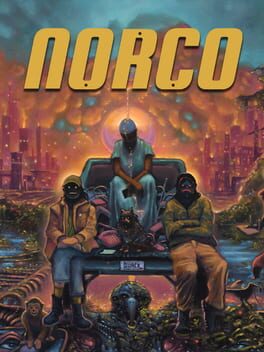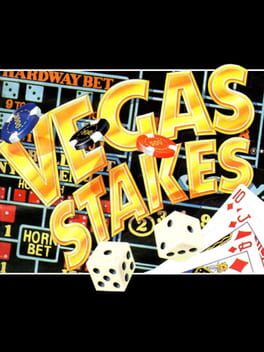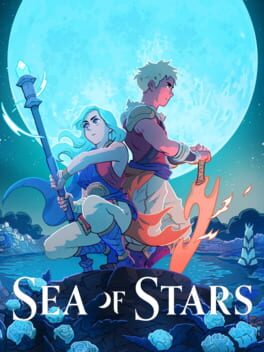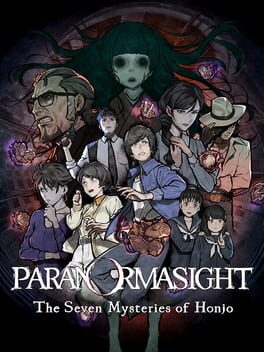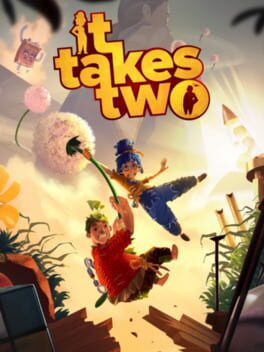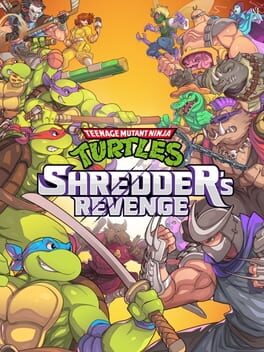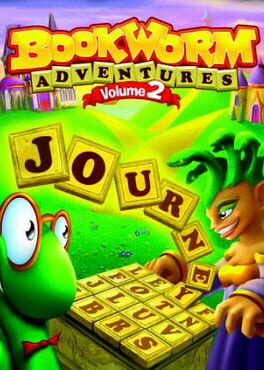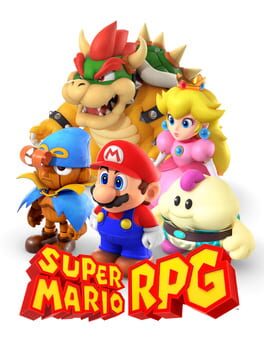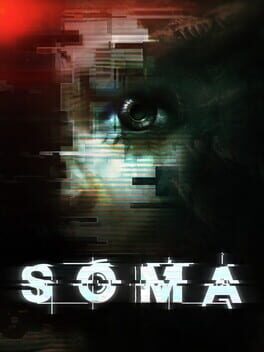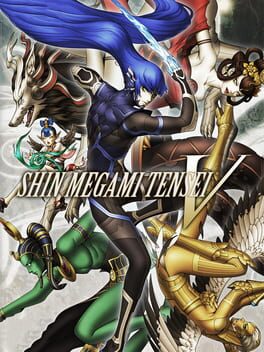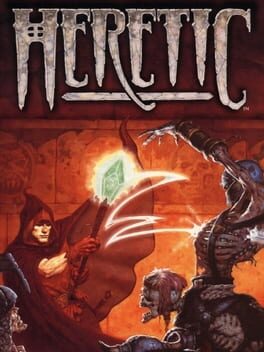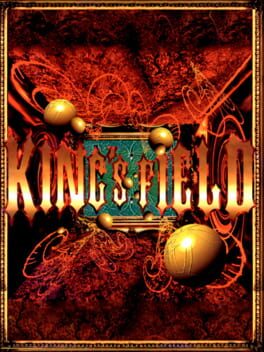epiglottis
2022
1993
Balatro whomst? I was thinking a whole lot about this game a couple of weeks ago and then, without any discussion, my brother bought a copy... the morphogenetic field is REAL...
Truly a pointless gameplay experience in 2024 unless you enjoy a dash of RNG atop your RNG, but I can never say no to a Japanese interpretation of Americana, and seeing HAL put their spin on a gaudy shithole like Vegas is a treat. Interesting sliding scale of graphical photorealism that recalls Clock Tower of all things. No way was I ever going to hit the ridiculous 10mil win condition but I tapped out after a cyborg stole half of my money.
Truly a pointless gameplay experience in 2024 unless you enjoy a dash of RNG atop your RNG, but I can never say no to a Japanese interpretation of Americana, and seeing HAL put their spin on a gaudy shithole like Vegas is a treat. Interesting sliding scale of graphical photorealism that recalls Clock Tower of all things. No way was I ever going to hit the ridiculous 10mil win condition but I tapped out after a cyborg stole half of my money.
2023
A few months before this game was released, Yasunori Mitsuda made a blog post saying that he would no longer work with composers outside of his studio. He doesn't mention Sea of Stars explicitly, but considering the feelings he discusses in the post combined with Sabotage's use of his name to promote a game that he only contributed twenty minutes of music to, the experience was likely an alienating one for him. One minute you're a hired hand on a retro RPG, the next you're the linchpin for a set of insurmountable nostalgic expectations.
I lead with this because it's an effective symbol for Sea of Stars' haphazard approach to "borrowing" from its influences. It isn't that Mitsuda's music is better than the rest - although some of the tracks in this are plodding Quest 64 pisstakes that I certainly wouldn't want to be associated with - but that the game tries to staple it and any other homage material onto itself as though the magic will still hold without any kind of context. The fact that the reference exists is paramount; the meaning that the reference supported in its original incarnation is unnecessary. This is most egregious in the empty story, twenty-five hours of plot for plot's sake, and though I won't spoil the game/waste my time belaboring how this fails in its many attempts to emulate Chrono Trigger, I will say that everything from start to finish(es) around Garl is spectacularly mishandled. Expecting me to care about someone named Garl is already an insane ask; making him this insipid and one-dimensional to boot puts the nail in the proverbial coffin.
When the game does step outside of its comfort zone and attempts synthesis or originality, it finds some success. Though I don't love the sickly lighting or the overly busy palettes, this is still an impressive graphical achievement. The first journey across the Sea of Stars gave me a little sensory rush that this medium rarely does anymore. As a mechanical experience, its interesting resource management and strong second act ultimately collapse under its balance issues, shallow growth and equipment progression, and lack of difficulty. The emphasis on combos as a means to round out the tiny movepools falls flat because outside of Mending Light they have no utility beyond breaking an awkward lock. Your best option half of the time is just a supercharged Moonerang anyway, so most combats play out the same way, and boss fights are often too long.
I think this might hit for a young or novice RPG player, but it would also be a shame to start them here when Chrono Trigger et. al. are so much richer and more meaningful. This is mostly just branding-first pay-to-play nostalgia and its rapturous reception will probably look like Kickstarters' remorse after a few years of hindsight.
I lead with this because it's an effective symbol for Sea of Stars' haphazard approach to "borrowing" from its influences. It isn't that Mitsuda's music is better than the rest - although some of the tracks in this are plodding Quest 64 pisstakes that I certainly wouldn't want to be associated with - but that the game tries to staple it and any other homage material onto itself as though the magic will still hold without any kind of context. The fact that the reference exists is paramount; the meaning that the reference supported in its original incarnation is unnecessary. This is most egregious in the empty story, twenty-five hours of plot for plot's sake, and though I won't spoil the game/waste my time belaboring how this fails in its many attempts to emulate Chrono Trigger, I will say that everything from start to finish(es) around Garl is spectacularly mishandled. Expecting me to care about someone named Garl is already an insane ask; making him this insipid and one-dimensional to boot puts the nail in the proverbial coffin.
When the game does step outside of its comfort zone and attempts synthesis or originality, it finds some success. Though I don't love the sickly lighting or the overly busy palettes, this is still an impressive graphical achievement. The first journey across the Sea of Stars gave me a little sensory rush that this medium rarely does anymore. As a mechanical experience, its interesting resource management and strong second act ultimately collapse under its balance issues, shallow growth and equipment progression, and lack of difficulty. The emphasis on combos as a means to round out the tiny movepools falls flat because outside of Mending Light they have no utility beyond breaking an awkward lock. Your best option half of the time is just a supercharged Moonerang anyway, so most combats play out the same way, and boss fights are often too long.
I think this might hit for a young or novice RPG player, but it would also be a shame to start them here when Chrono Trigger et. al. are so much richer and more meaningful. This is mostly just branding-first pay-to-play nostalgia and its rapturous reception will probably look like Kickstarters' remorse after a few years of hindsight.
This must have had an unexpected scheduling or budgetary setback because after the exceptional first couple of hours it nosedives hard into jargon-heavy procedural territory. Once the game hits the daylight section, it brims over with red herrings, underexplored themes, and off-screen endings; it abandons its clever use of 3D perspective and the creeping sense of dread that perspective handily abets; and it tacks the compulsory VN metatextuality onto the ending as if it's embarrassed to even acknowledge it. The characters remain richly written and expressively designed, and you get an interesting feint toward disentangling common cultural mythology as a problem-solving method (think King of Dragon Pass), but when so many of its other ideas fail to even get off the ground, its successes feel accidental. Really disappointing.
2022
Almost thirty years after its initial release, this is still bizarrely overvalued as an emotional experience, and the remake leans into this with a florid translation meant to shore up its artistic cred. "Look, your counter-cultural adolescent fixation is actually deep and literary after all!" Square now claims of a game where you can fart on a dinosaur until it dies. The effort to canonize games as art has given birth to a whole lot of anecdotal overexaggeration, but I seriously cannot comprehend forming a legitimate bond with any of these caricatures, cute and expressive as they are.
The dishonesty is a shame, because even taken at its truer comic-book face, Live a Live has always been ambitious and rich with the spirit of experimentation that characterized Square's best work in the mid-to-late 90s. Unfortunately none of these virtues extend to the inane battle system, in which nearly every character sports ten or twelve different moves when there are at most two optimal options for any given encounter. It is no coincidence that the best chapters in the game (Sundown and Cube) are the ones that downplay the combat the most.
The Distant Future, in fact, has always been the most interesting chapter for this reason. While many of the other chapters pioneer early iterations of genre systems - item synthesis (Pogo), a crude skill point gimmick (Shifu), performance-based storytelling/rewards (Oboromaru) - Cube's chapter is brave enough to ask whether JRPG storytelling can survive without any mechanical hooks at all (save the last boss, only necessary as a justification for the frame narrative). Does it succeed? Insofar as anything ripping off two of the best sci-fi films of all time will, sure, but it's also hampered by its lack of depth. There just isn't enough time to take any of these characters anywhere interesting, and that goes for every chapter. It's a double-edged sword, because the breezy pace is a positive (and this battle system could not support a 40-hour game), but none of our seven protagonists make for especially strong anti-hate thesis statements when the time comes to wrap the whole thing up. The narrative is left fundamentally wanting, doubly so if you have even basic knowledge of English prefixes and can predict what lies in store for the final chapter.
Even if it doesn't make good on its lofty pretenses, there is plenty to enjoy here and it's one of the more justifiable expressions of the remake fetishism running rampant through the industry right now. We should at least be thankful that we got this and not Bahamut Lagoon.
The dishonesty is a shame, because even taken at its truer comic-book face, Live a Live has always been ambitious and rich with the spirit of experimentation that characterized Square's best work in the mid-to-late 90s. Unfortunately none of these virtues extend to the inane battle system, in which nearly every character sports ten or twelve different moves when there are at most two optimal options for any given encounter. It is no coincidence that the best chapters in the game (Sundown and Cube) are the ones that downplay the combat the most.
The Distant Future, in fact, has always been the most interesting chapter for this reason. While many of the other chapters pioneer early iterations of genre systems - item synthesis (Pogo), a crude skill point gimmick (Shifu), performance-based storytelling/rewards (Oboromaru) - Cube's chapter is brave enough to ask whether JRPG storytelling can survive without any mechanical hooks at all (save the last boss, only necessary as a justification for the frame narrative). Does it succeed? Insofar as anything ripping off two of the best sci-fi films of all time will, sure, but it's also hampered by its lack of depth. There just isn't enough time to take any of these characters anywhere interesting, and that goes for every chapter. It's a double-edged sword, because the breezy pace is a positive (and this battle system could not support a 40-hour game), but none of our seven protagonists make for especially strong anti-hate thesis statements when the time comes to wrap the whole thing up. The narrative is left fundamentally wanting, doubly so if you have even basic knowledge of English prefixes and can predict what lies in store for the final chapter.
Even if it doesn't make good on its lofty pretenses, there is plenty to enjoy here and it's one of the more justifiable expressions of the remake fetishism running rampant through the industry right now. We should at least be thankful that we got this and not Bahamut Lagoon.
2021
The light touch serves the sample-platter gameplay well, but lets down the storytelling gravely. There's nothing beneath the petty squabbling that makes Cody and May's struggles feel real, just a handful of Isn't This So Relatable millennial bugbears - you work too much, you've lost your passion, etc. Still a totally worthwhile play as long as you and your partner are on the same page about sub-Pixar ESL buffoonery.
Jingling keys for the millennial gamer nostalgia crowd, right down to the deeply ineffective casting of the original turtle voice actors, but then TMNT as an overall enterprise has always stunk of desperation so it's to be expected. And if you absolutely must pander, pandering via one of the great beat-em-ups of its time is probably the way to do it. A simple experience born from a simple experience, aiming for and achieving little more than co-op goodness.
Save for the music, though, the sound design really is awful. Am I repeatedly slamming a Foot Soldier into the ground or am I throwing creampuffs at a wall?
Save for the music, though, the sound design really is awful. Am I repeatedly slamming a Foot Soldier into the ground or am I throwing creampuffs at a wall?
2023
The original game was such a remarkable use of a new ludic grammar to expand Mario's aesthetic and affective horizons that it's easy to lose sight of what an achievement in programming it also was. Now that Nintendo's got the Mario style guide down to a fine point and has long since conceded that they can't compete technologically anymore, what's left to iterate on with this material? The answer should be obvious - the nonsensically tuned combat at its center - but the only balance changes here are superfluous mechanics designed to make the game even easier and faster, as if Nintendo is embarrassed that this milestone for their flagship franchise arrived in RPG form. Far less a remake than a shiny $60 coat of paint.
They could also have gotten rid of the isometric platforming because it is doo doo but not even the Star Road would grant me that wish.
They could also have gotten rid of the isometric platforming because it is doo doo but not even the Star Road would grant me that wish.
2015
A Philosophy in Science Fiction 101 pill stuffed into a first-person stealth horror meatball. It's easy enough to buy into the illusion until you're stuck on an elevator and Simon gets the "Who am I? Am I... me?" existential churn going. I will be a little saucy and say that Bioshock Infinite is a more conceptually ambitious and provocative take on the self-consciously determinist video game while also being more accessible.
2021
It's another helping of the Shin Megami Tensei fast food we've all come to know and love. Assuming no catastrophic assembly line failure, you always know exactly what you're getting with this franchise; the product is satisfying and reliable. Unfortunately, it's been twenty years since I first emulated SMT1, and given this tendency toward the static, neither the mechanics nor the pet themes hold much interest for me any longer. Hard mode is more artificially difficult than ever, with nothing new to offer veterans except the easily-gamed Magatsuhi critical threat, and until you break the game with Luster Candy/Debilitate you're basically at the mercy of the rigged RNG. I do appreciate the return to relatively austere storytelling, and the concept of an overcrowded pantheon causing Law/Chaos strife is interesting, but at the thematic level this is mostly the same story Atlus has been telling for the six previous games. I'll chalk all this up to "it's not you, it's me" for now, but it's hard to ignore that Megaten is running on fumes at this point, and if Persona 6 is set in a high school again then I'm tapping out for good.
Doesn't help that the game is ugly as sin. You spend 75% of the game wandering through bombed-out, bloom-lit shitholes that are entirely interchangeable save for their color schemes. Dancing Crazy Murder is so good that I almost forgive it though.
Doesn't help that the game is ugly as sin. You spend 75% of the game wandering through bombed-out, bloom-lit shitholes that are entirely interchangeable save for their color schemes. Dancing Crazy Murder is so good that I almost forgive it though.
1994
1994
2022
There are many things to admire about Pentiment, but the one I keep coming back to is the game's refusal to let your build-linked dialogue choices always be the ideal options in a conversation. This is extremely rare, even in other games that are celebrated for their writing. It's an effective reminder that not everyone you meet has a need for or interest in your superior cognition. It also dissuades you from minmaxing Andreas (silly as the thought may sound), encouraging a build based on your own personal interests rather than one engineered to produce the highest number of optimal outcomes. You're best served if you're in it for the love of learning, much like Andreas himself; gamers looking to exhaust every conversational tree and win every heart and mind are not going to have fun.
This is especially important to remember given Pentiment's assertion that powerful people prey on the ignorance and incuriosity of others in order to preserve their power. We are responsible for making our own meaning in this world, yes, but we must do so without losing sight of history, lest the ruling class create their own.
This is especially important to remember given Pentiment's assertion that powerful people prey on the ignorance and incuriosity of others in order to preserve their power. We are responsible for making our own meaning in this world, yes, but we must do so without losing sight of history, lest the ruling class create their own.
2023
Stolen mechanics → stolen gamefeel → stolen endorphins. Press and hold R2 to fondly remember a game that cared about level design, crafted a consistent difficulty curve instead of stuffing a bunch of bullshit into the last 25%, and didn't force environmental ambience down your throat with a quippy talking cricket. It has enough of its own unique charms (I love the ostentatious records, some of them remind me of the Rule of Rose theme!) that the overall creative bankruptcy becomes that much more disheartening.
